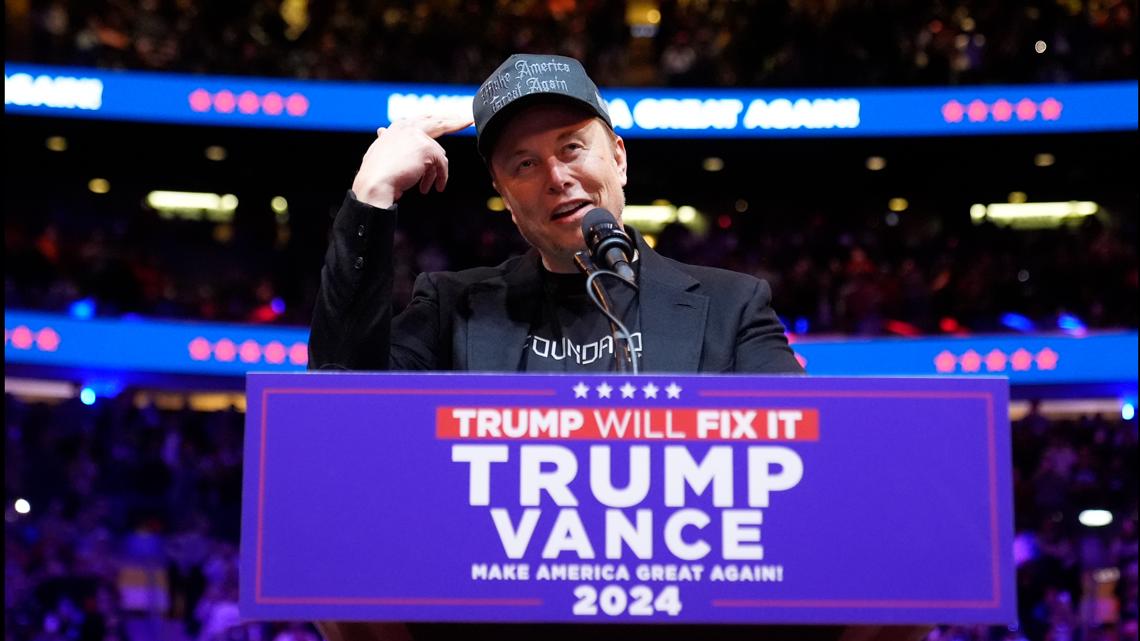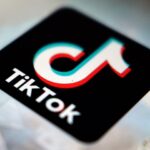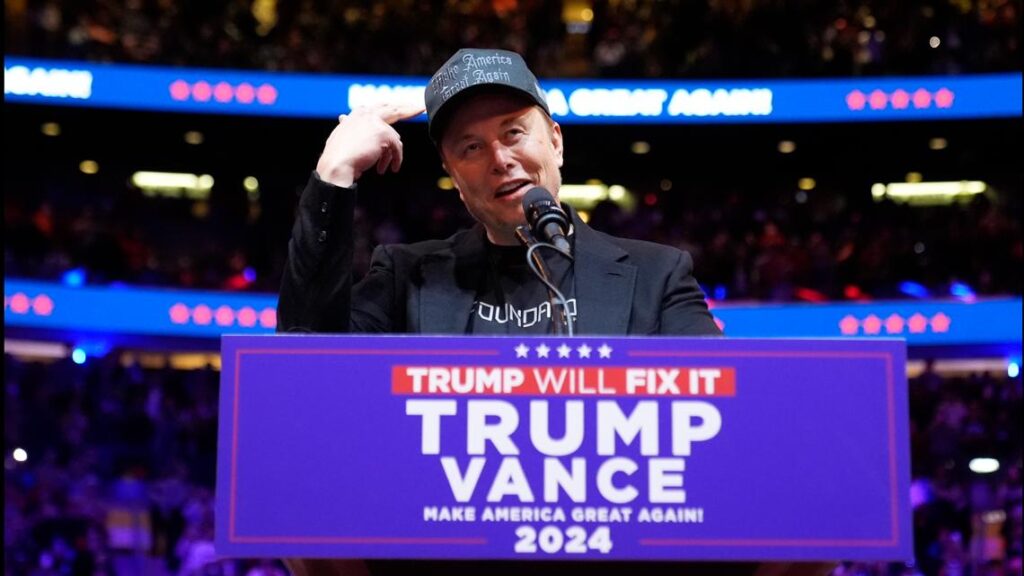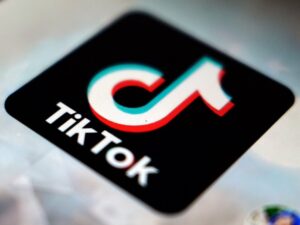
SpaceX holds billions of dollars in NASA contracts, Tesla benefits from tax incentives and the Boring Company and Neuralink all intersect with the federal government
WASHINGTON — In picking billionaire Elon Musk to be “our cost cutter” for the U.S. government, President-elect Donald Trump won’t be the first American president to empower a business tycoon to look for ways to dramatically cut federal regulations.
President Ronald Reagan tapped J. Peter Grace to lead a bureaucratic cost-cutting commission in 1982. Still, the chemical business magnate had fewer conflicts of interest than the world’s richest man does today.
Musk’s SpaceX holds billions of dollars in NASA contracts. He’s CEO of Tesla, an electric car business that benefits from government tax incentives and is subject to auto safety rules. His social media platform X, artificial intelligence startup xAI, brain implant maker Neuralink and tunnel-building Boring company all intersect with the federal government in various ways.
“There’s direct conflicts between his businesses and government’s interest,” said Ann Skeet, director of leadership ethics at Santa Clara University’s Markkula Center. “He’s now in a position to try and curry favor for those enterprises.”
Musk is also more influential, having pumped an estimated $200 million through his political action committee to help elect Trump, made himself a fixture at Mar-a-Lago since the presidential election and is on regular speaking terms with like-minded political world leaders, from Argentina’s President Javier Milei to Italy’s Prime Minister Giorgia Meloni.
Trump has said Musk and former GOP presidential candidate Vivek Ramaswamy will lead a new “Department of Government Efficiency,” or DOGE, — a joke name that references the cryptocurrency Dogecoin and appeals to Musk’s sense of humor.
“We finally have a mandate to delete the mountain of choking regulations that do not serve the greater good,” Musk said Wednesday on X.
Trump has said that Musk and Ramaswamy will work from outside the government to offer the White House “advice and guidance” and will partner with the Office of Management and Budget to drive structural reform — some of which could only be done through Congress.
“If it’s a commission, it’s outside the government” and Musk could not have a White House office or official government title, said Richard Painter, a White House ethics lawyer during the George W. Bush administration. “Then, the president takes the advice or doesn’t.”
If it were a true government agency, however, Musk would run afoul of federal conflict of interest laws unless he divested from his businesses or recused from government matters involving them, Painter said.
Trump could grant a rare waiver exempting Musk from those laws, a move that has been politically unpopular in the past, Painter said.
Tesla, SpaceX and X didn’t immediately respond to requests for comment Wednesday about whether Musk would recuse himself. The Trump transition team also didn’t immediately respond to a request for comment.
However it is structured, Musk’s ideas are expected to have an influence.
Regulating auto safety
Tesla, the electric vehicle company that made Musk the world’s wealthiest person, has had repeated skirmishes with the National Highway Traffic Safety Administration, which regulates vehicle safety. So any cuts to NHTSA funding or staffing could help Tesla.
The agency has forced Tesla to do recalls it didn’t want, and it has opened investigations of Tesla vehicles, some of which raised questions about Musk’s claims that Tesla is close to deploying autonomous vehicles without human drivers. The agency also is working on regulations that cover vehicle automation.
Auto safety advocates are worried that a Department of Government Efficiency co-chaired by Musk could propose draconian cuts at NHTSA.
“That could be incredibly problematic because that would impact every rule-making from all of the agencies that currently oversee companies that Musk owns,” said Michael Brooks, executive director of the nonprofit Center for Auto Safety, a watchdog group.
If implemented, Musk’s plan for efficiency at NHTSA could mirror what he did when he took over Twitter — draconian staff cuts, said Missy Cummings, director of the autonomy and robotics center at George Mason University and a former safety adviser to NHTSA.
While Cummings concedes there is room for much of the federal government to become more efficient, she said that NHTSA is already understaffed and she predicted that Musk would try to slow or stop NHTSA investigations or handicap the agency so it would have trouble enforcing regulations.
“It would just leave it as a shell of the agency that it was,” she said. “Their whole job would be to put out commercials reminding people to just wear their seat belts.”
Space exploration
Launching test flights out of South Texas, SpaceX’s mega rocket Starship is how NASA intends to land astronauts on the moon for the first time in more than a half-century. NASA has awarded more than $4 billion to SpaceX for the first two human moon landings coming up later this decade under the Artemis program. Musk has been at odds with the Federal Aviation Administration for slowing Starship over what he contends is excessive bureaucracy.
SpaceX also has racked up multiple contracts with NASA over the past decade for launching supplies and astronauts to the International Space Station. The contracts for crew flights alone from 2020 through 2030 total $5 billion.
More recently, in June, NASA awarded an $843 million contract to SpaceX to provide the vehicle for deorbiting the International Space Station at the end of its lifetime in early 2031, directing it to a fiery re-entry over the Pacific.
SpaceX also has multiple contracts with the Defense Department, some classified and said to be worth billions. In addition, the Pentagon has purchased internet services in Ukraine from SpaceX’s Starlink constellation. The militarized version of Starlink is called Starshield.
Social media and AI
The social media platform X is another Musk company that has drawn scrutiny from federal regulators. The Federal Trade Commission has probed Musk’s handling of sensitive consumer data after he took control of the company in 2022 but has not brought enforcement action. The SEC has an ongoing investigation of Musk’s purchase of the social media company.
Musk has been forceful with his political views on the platform, changing its rules, content moderation systems and algorithms to conform with his world view. After Musk endorsed Trump following an attempt on the former president’s life last summer, the platform has transformed into a megaphone for Trump’s campaign, offering an unprecedented level of free advertising that is all but impossible to calculate the value of.
Musk’s strong interest in AI is also likely to play a role. He’s in the process of building an AI supercomputer in Memphis, Tennessee, for his AI startup xAI.
But environmental groups have raised concerns about pollution generated by the facility’s gas turbines and its strain on the local power grid, prompting attention from the Environmental Protection Agency.
The facility is located near predominantly Black neighborhoods that have long dealt with pollution and health risks from factories and other industrial sites.
AP reporter Adrian Sainz in Memphis, Tennessee, and AP Aerospace Writer Marcia Dunn in Cape Canaveral, Florida, contributed to this report.











More Stories
Colorado school district has a fix for aviation industry mechanic shortage
Jeffco School Board approves sale of three closed schools
For embattled Tiktok, Trump offers hope of a reprieve